Best Cardiologist in Nagpur

Introducing Dr. Chetan Rathi, a distinguished Cardiologist in Nagpur, whose eminence transcends the realm of medical proficiency. Dr. Rathi is more than a practitioner, he is the one who acts as a guiding light, and a health advocate for his patient’s holistic well-being. His commitment to the betterment of his patient’s lives marks him as an exemplary figure in the realm of cardiac care.
Why choose a cardiologist in Nagpur?
Nagpur, a city renowned for its exceptional medical services, stands as a haven for those seeking to fortify their heart health. Amidst the labyrinth of medical choices, opting for a cardiologist in Nagpur or a Heart Specialist in Nagpur presents a spectrum of advantages, tailored to address your heart’s unique needs. Enter the esteemed realm of Dr. Chetan Rathi, a beacon of cardiac excellence whose expertise anchors him as a trusted guardian of heart health.
The decision to entrust your heart health to a Nagpur-based cardiologist opens the door to a world of specialized knowledge and unparalleled care. Whether it’s a routine checkup to assess your heart’s rhythm or intricate procedures aimed at restoring vitality, a local cardiologist is more than a medical professional—it’s a partner in your journey toward optimal well-being.
What sets Nagpur apart isn’t just its exceptional medical services, but the geographic advantage it offers. Access to world-class cardiac expertise is not a distant dream but a tangible reality, all within arm’s reach. By choosing a cardiologist or heart specialist like Dr. Chetan Rathi, you aren’t just embracing medical care, you’re embracing peace of mind.
When should you consult a Cardiologist in Nagpur?
Consulting a cardiologist in Nagpur is advisable under several circumstances:
Family history
If you have a family history of heart disease or any cardiovascular conditions then you should consult a cardiologist for preventive check-ups.
Chest pain
If experiencing severe or intense chest pain or even if it’s not severe, it’s important to consult a cardiologist to determine the cause.
High cholesterol level
Standard medications aren’t effectively reducing high cholesterol level that’s why consulting a cardiologist is advisable for risk assessment and preventive measures.
Smoking habit
Smokers, both current and former are at higher risk of heart-related issues. Do Regular check-ups with a cardiologist i Nagpur can help you to monitor heart health.
Diabetes
Consultation with a cardiologist is recommended to assess and manage the impact of diabetes on your heart health, especially if there are specific concerns or symptoms related to the heart.
Cardiology treatments available at our clinic in Nagpur
Cardiology treatments available at our clinic with a range of services and procedures. Here are some common cardiology treatments that clinics often offer:
Angioplasty
Coronary angioplasty is a minimally invasive technique of abdominal artery angioplasty, which is used to treat coronary arteries that are obstructed or constricted.
Ablation
Ablation is a procedure used to correct heart rhythm problems. It involves the use of heat or cold energy to destroy abnormal heart tissue that causes irregular electrical signals.
Valve Replacement
Valve replacement surgery is performed to replace a damaged heart valve with an artificial valve. This surgery aims to restore proper blood flow through the heart.
Cardiac Rehabilitation
Cardiac rehabilitation is a structured activity involving exercise, education, and counseling to improve heart health after a heart attack, heart surgery, or for managing heart conditions.
Stenting
Stenting involves inserting a small tube into narrowed or blocked arteries to keep them open to improving blood flow. It’s commonly done during angioplasty.
Coronary Artery Bypass Graft Surgery
CABG is a surgical procedure used to bypass blocked or narrowed coronary arteries. Healthy blood vessels from other parts of the body are used to create detours around the blocked arteries to improved blood flow to the heart.
Arrhythmia Surgery
Arrhythmia surgery involves various procedures including ablation or surgical interventions to correct abnormal heart rhythms that can cause complications.
Defibrillator
Cardioverter-defibrillator is a device implanted under the skin to monitor heart rhythm and It can deliver electrical shocks or pacing to correct dangerous irregular heartbeats.
Pacemakers
Pacemakers are small devices implanted under the skin that help control abnormal heart rhythms by sending electrical impulses to the heart muscles.
TAVR Process
TAVR Process involves inserting a replacement valve through a catheter and placing it within the diseased valve, eliminating the need for open-heart surgery.
Our Medical Services

ECG
An electrocardiogram (ECG) is one of the only and speediest tests utilized to survey the heart. Anodes (small, plastic patches that stick to the skin) are set at certain spots on the chest, arms, and legs.
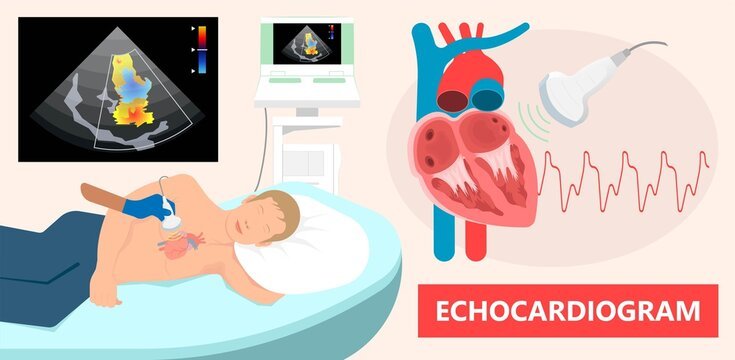
2D Echo
A two-dimensional Echocardiogram or 2D Echo test is a demonstrative test that employs ultrasound waves to evaluate the working of the heart.

Holter Monitoring
Holter monitoring measures your heart activity over an extended period, usually between 24 and 48 hours. Basically, a Holter Monitoring is a portable device which records the heart’s electrical signals.

BP Monitoring
Each time your heart beats, it pumps blood into your arteries. A blood pressure measurement may be a test that measures the force (pressure) in your arteries as your heart pumps.

Coronary Angiography
Coronary angiography diagnoses and evaluates coronary artery blockages. Contrast dye is injected into arteries, enabling X-ray imaging to visualize blood flow and identify narrowing or blockages.
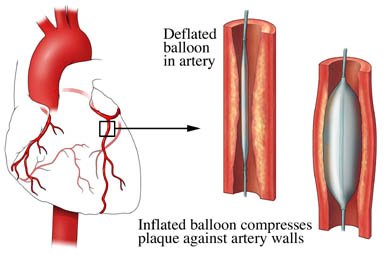
Coronary Angioplasty
Coronary angioplasty is a minimally invasive technique of abdominal artery angioplasty, which is used to treat coronary arteries that are obstructed or constricted and it is the most appropriate technique used by doctors for the treatment.
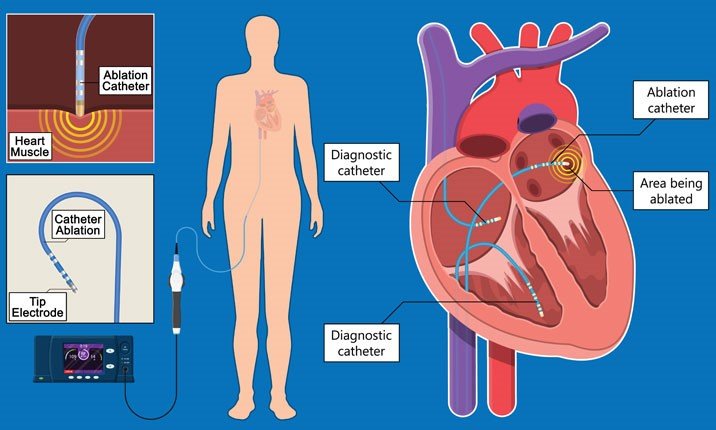
Electrophysiology Study
An Electrophysiology Study (EP study) is a test utilized to assess the heart’s electrical framework and check for abnormal heart rhythms. The natural electrical impulses coordinate the contractions of different parts of the heart.
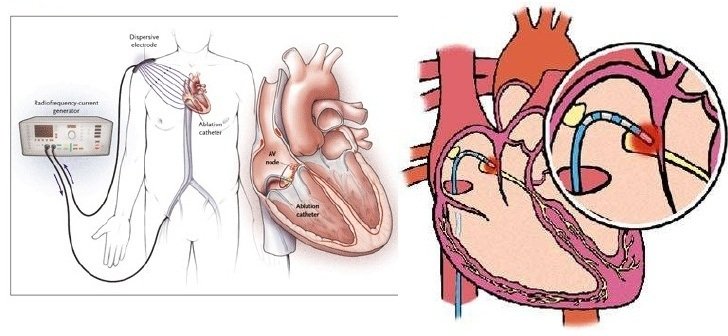
Rediofrequency Ablation
Radiofrequency Ablation (RFA) is a minimally invasive medical procedure that uses high-frequency electrical currents to generate heat, effectively destroying abnormal tissue or cells.
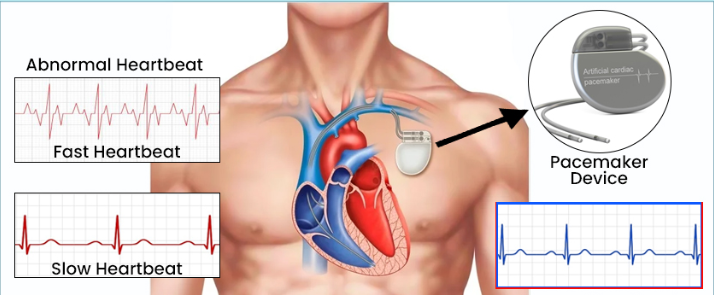
Pacemaker Implantation
Pacemakers are medical devices designed to support and regulate the electrical system of the heart, ensuring it functions properly. This medical procedure entails the insertion of a small device into the chest region.

ICD Implantation
An Implantable Cardioverter-Defibrillator (ICD) is a life-saving device that plays a crucial role in monitoring and regulating heart rhythms. It consists of a pulse generator and leads implanted in the heart.

CRT_P & CRT-D Implantation
CRT implantation is a process in which technological instruments known as CRT-P and CRT-D where p stands for pacemaker and d stands for defibrillator.

Valvuloplasty
A balloon mitral valvuloplasty is a process to extend a restricted heart valve and improve blood flow. The heart valves handle how blood drives through the heart.
Our Achievements in Numbers
Happy Patients
Years of experience
Specialisations
Hospital Associations
Awards & Recognition
Patient Testimonials
Dr Chetan Rathi sir is good cardiologist. I visited him many times with my family and friends for consult about issues related with cardiology.
Our Videos




Our Blog
 How Does Vitamin D Affect Your Heart?
How Does Vitamin D Affect Your Heart?
Vitamin D is much more than the “sunshine vitamin”; it is very important in the whole body of heart health. It works from bone health to an enhanced immunity function. Scientific studies show that this regulates cardiovascular health; therefore, it is a very great factor in preventing heart diseases and maintaining optimal heart function. This… Continue reading How Does Vitamin D Affect Your Heart?
Read More Understanding Diabetes: Causes, Symptoms, and Management
Understanding Diabetes: Causes, Symptoms, and Management
Diabetes mellitus is a chronic condition that affects the way your body processes glucose, or sugar. Unchecked, diabetes mellitus can lead to serious complications, such as heart disease and kidney damage, as well as nerve problems. Understanding the types of diabetes, the symptoms of diabetes, the causes of diabetes, and how to take care of… Continue reading Understanding Diabetes: Causes, Symptoms, and Management
Read More What Is Syncope and How Can It Be Prevented and Treated?
What Is Syncope and How Can It Be Prevented and Treated?
Syncope, also known as fainting, is a short-lived loss of consciousness which primarily results from a sudden decrease in blood flow to the brain. Although fainting can be alarming, syncope is generally not a serious condition and can be caused by a variety of reasons; however, it may indicate an underlying serious medical condition in… Continue reading What Is Syncope and How Can It Be Prevented and Treated?
Read More



